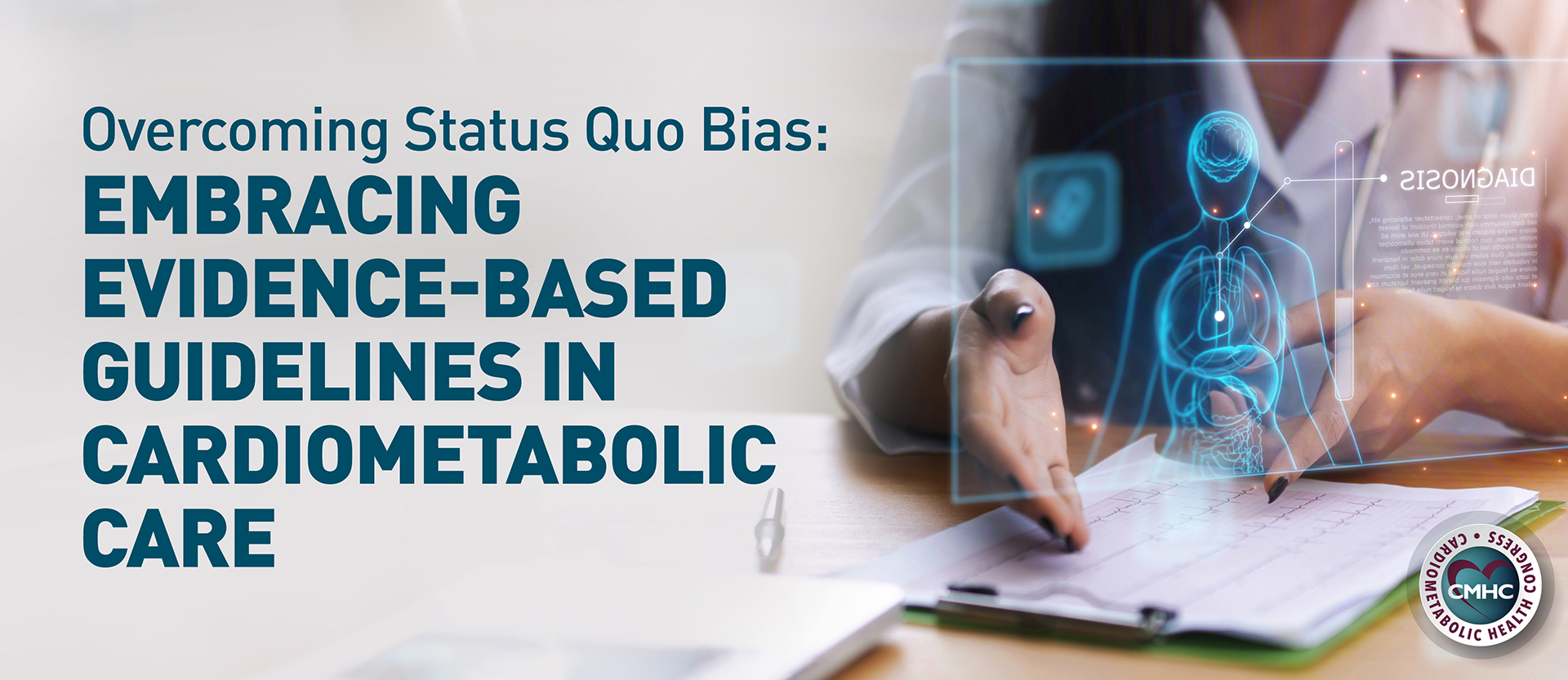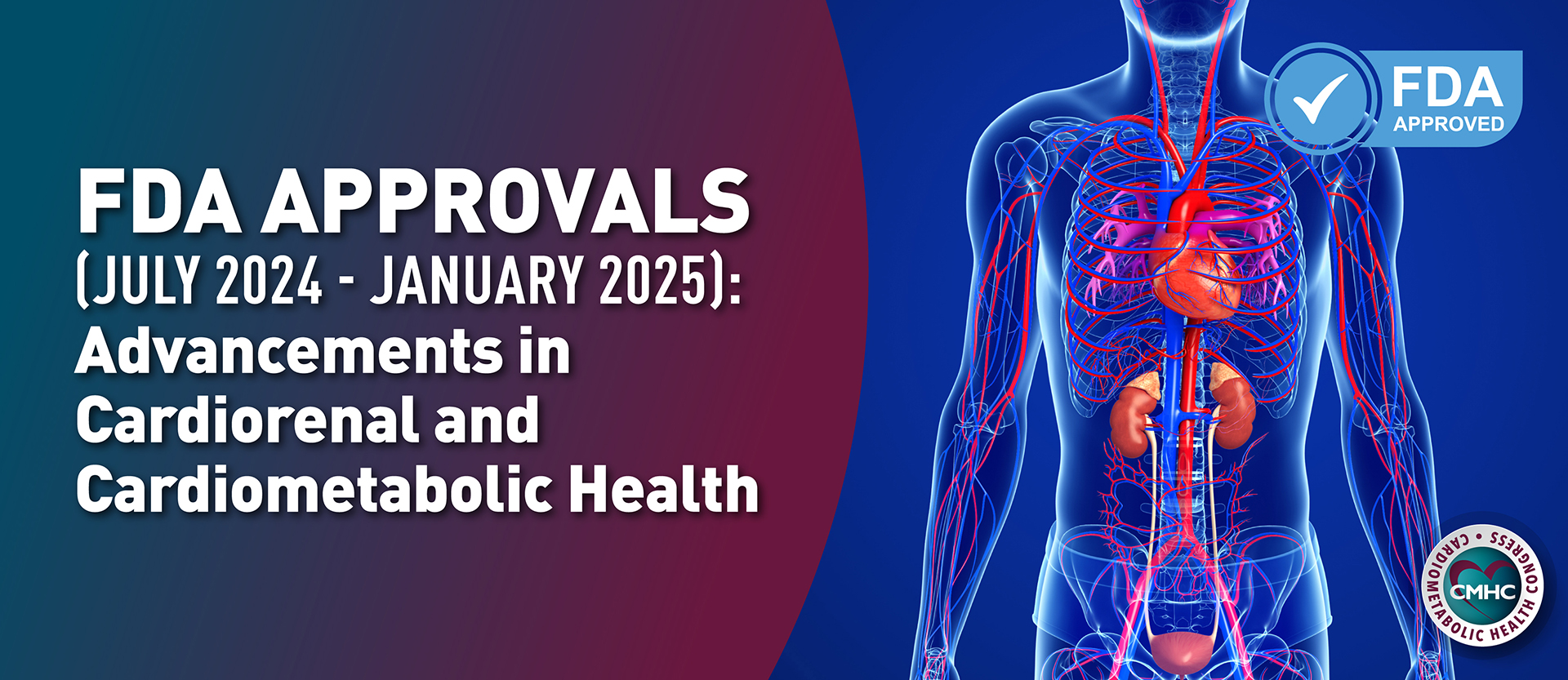Cardiometabolic diseases, encompassing cardiovascular conditions and metabolic disorders like diabetes, are among the most widespread global health challenges. These conditions often intersect, sharing common risk factors and underlying mechanisms. Effectively addressing them requires comprehensive, evidenced based cardiometabolic care that integrates the latest research into clinical practice.
However, healthcare professionals often struggle to consistently apply the latest evidence-based strategies in cardiometabolic care. The rapid pace of medical advancements, coupled with time constraints and limited access to digestible resources, frequently leads clinicians to rely on familiar, established practices instead of adopting new, evidence-backed strategies. This tendency, known as status quo bias, can be a significant barrier to implementing the most effective treatment options.
Understanding and Overcoming Status Quo Bias in Cardiometabolic Medicine
Status quo bias refers to the preference for maintaining the current state of affairs, even when presented with evidence that a change could be beneficial. In cardiometabolic medicine, this bias can hinder the adoption of new, evidence-based practices.
To overcome this bias, healthcare providers must be open to re-evaluating their current beliefs and practices and be willing to adopt new approaches based on high-quality evidence. This discussion explores the principles and practices of evidence-based cardiometabolic medicine, emphasizing the importance of integrating the latest research findings into clinical decision-making to improve patient outcomes.
The Importance of Evidenced Based Cardiometabolic Care
Evidence-based medicine (EBM) is the careful and systematic use of the best current evidence in making decisions about the care of individual patients. It combines clinical expertise, patient values, and the most relevant research evidence. In the context of cardiometabolic care, EBM is vital for several reasons:
Improved Patient Outcomes: Evidence-based guidelines help ensure that patients receive the most effective treatments, reducing the risk of adverse events and enhancing overall health outcomes.
Standardized Care: EBM provides a consistent framework for care, ensuring that all patients receive the same high-quality treatment regardless of where they are treated.
Resource Optimization: By focusing on proven interventions, EBM enables healthcare providers to use resources more efficiently, avoiding unnecessary tests and treatments.
Key Areas for Evidence Based Cardiometabolic Care
Essential areas for evidence-based strategies in cardiometabolic care include:
Lifestyle Interventions: Effective management of diet, physical activity, and weight.
Pharmacological Interventions: Use of antihypertensive medications, lipid-lowering agents, and antidiabetic drugs.
Surgical and Procedural Interventions: Including bariatric surgery and revascularization procedures.
Integrating Patient Preferences and Values
While evidence-based guidelines offer a treatment framework, it’s essential to consider individual patient preferences and values. Shared decision-making is a critical component of EBM, ensuring that patients are well-informed about their options and actively involved in their care decisions.
Challenges in Implementing Evidence-Based Approaches
Several challenges can impede the implementation of evidence-based practices, including information overload, variability in evidence quality, resource constraints, and patient adherence. Addressing these challenges is crucial for overcoming status quo bias and effectively integrating EBM into cardiometabolic care.
Discover 2024’s Critical Advances in Cardiometabolic Care
Here are some recent advances in cardiology:
Aortic Disease: Moderate hypothermia during aortic arch surgery is effective, reducing the need for deep hypothermia.
Coronary Heart Disease: Initiate beta-blockers in patients with acute MI and normal LVEF unless contraindicated or if they have heart failure.
Heart Failure: Home-based cardiac rehabilitation is as effective as center-based programs.
Preventive Cardiology: The new PREVENT risk calculator is more accurate than the 2013 PCEs’ ASCVD risk estimates and is recommended for risk stratification.
Looking Forward: Embrace Evidenced Based Cardiometabolic Care for Better Health
By prioritizing practical, evidence-based strategies and fostering a collaborative, patient-centered approach, healthcare providers can significantly improve the management of cardiometabolic diseases and enhance the quality of life for their patients. Overcoming status quo bias and embracing the latest evidence-based practices are essential steps toward delivering high-quality, personalized care in cardiometabolic medicine.
Take the next steps, explore the recent updates above and consider attending the 19th Annual Cardiometabolic Health Congress (CMHC) in Boston, MA (Oct. 17-19) for the latest advancements in cardiorenal metabolic health and risk reduction.








